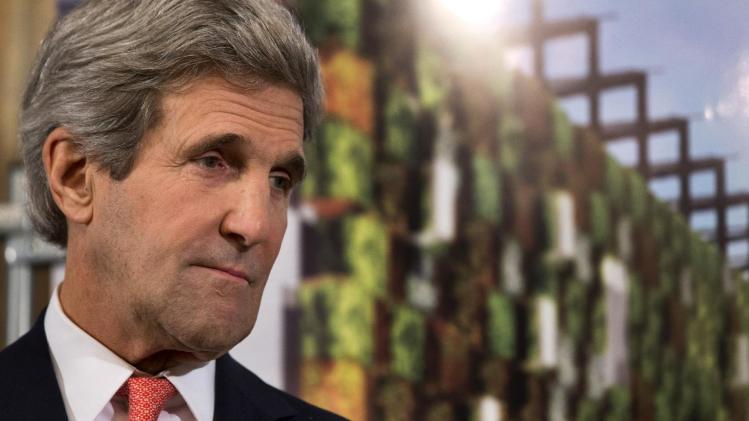 By TIM ARANGO and CEYLAN YEGINSU
By TIM ARANGO and CEYLAN YEGINSU
As the campaign bus moved through Istanbul’s traffic, the cityscape blurred: construction cranes, new shopping malls and boutiques, a billboard for the luxury department store Harvey Nichols — all signposts of a city more populous than some European countries, vastly reshaped under the Islamist government of Prime Minister Recep Tayyip Erdogan.
Inside the bus was a secular candidate to be the next mayor, Mustafa Sarigul who for years has led Istanbul’s most affluent district, Sisli, and is now the greatest hope among Mr. Erdogan’s opponents. They see Sunday’s mayoral elections as the first step in loosening the hold that Mr. Erdogan’s Justice and Development Party, known as the A.K.P., has over Turkish politics.
Normally, local elections in Turkey are minor affairs — hinging on parochial concerns like zoning laws and municipal services. Yet these are anything but ordinary times in Turkey, as a corruption scandal and unrest in the streets have threatened the rule of Mr. Erdogan, in power more than a decade, and plunged Turkish politics into turmoil. The outcome of the elections could determine Mr. Erdogan’s political future.
Along for the ride with Mr. Sarigul were some of his old friends. Conspicuously absent, however, were any members of the local news media. They were apparently cowed by Mr. Erdogan, who in one of many leaked telephone conversations on social media was heard urging a local news executive to ignore Mr. Sarigul’s campaign.
“The media is scared of being on this bus,” Mr. Sarigul said in an interview. “If they came on this bus, they would be fired.”
The growing scandal, being played out in a series of embarrassing leaks on social media, has exposed a rift between Mr. Erdogan and his onetime ally, the Islamic preacher Fethullah Gulen, whose followers occupy positions in the judiciary and the police and are said to be behind the corruption investigation. Mr. Gulen lives in self-imposed exile in Pennsylvania, and his millions of supporters in Turkey are likely to vote for opposition candidates on Sunday, including Mr. Sarigul in Istanbul.
In a written response to questions, Mr. Gulen denied that his followers were targeting the government, saying, “Neither my friends nor I have been or ever will be part of a plan or conspiracy against those who govern us.”
Still, he left no doubt that his followers have withdrawn support for the A.K.P., saying, “The power consolidated in the hands of the ruling party’s elite is unprecedented in Turkish history.”
The nationwide municipal elections on Sunday, the first time Turks will vote since last summer’s antigovernment demonstrations, are seen as a referendum on Mr. Erdogan’s tenure as he struggles to survive the scandal with authoritarian countermeasures, including purges of the police and the judiciary; a crackdown on the press; restrictions on access to Twitter and YouTube, where most of the damaging leaks have first appeared; and a new law that gives the government more control over the courts.
While many analysts, as well as polling data, predict that the A.K.P. will win a plurality nationwide, the percentage is most important.
Anything substantially less than 40 percent — roughly what the party won in the last local elections, in 2009 — would be considered weak. The effects could intensify dissatisfaction in the party toward Mr. Erdogan that could ultimately lead to his exit from politics. A strong showing, though, could embolden him to seek the presidency in an election later this year or, alternatively, seek to alter his party’s term-limit rules and run for a fourth term as prime minister.
Turkey is a member of NATO and a mostly Muslim country of 76 million people whose economic prosperity and, until recently, democratic progress, had been welcomed by many in the West, including President Obama, as an exemplar of stability in a region in turmoil.
Turkey also had been seen as an important strategic ally of the United States and Europe in managing the region’s many complex problems, including the civil war in Syria and Iran’s nuclear program. But with Turkey preoccupied by an internal mess, and its leaders blaming the United States and other foreign powers for destabilizing the country, Turkey’s reliability as an ally to the West is increasingly in doubt.
Mr. Erdogan, of course, will not be on any ballot Sunday, but he has campaigned as if he were, crisscrossing the country in recent weeks and holding multiple rallies, underscoring the degree to which Turkish politics — even when it comes to local municipalities — revolves around his personality.
At his rallies, if he is not blaming foreign provocateurs for his problems, he is taking swipes at the news media, putting an already intimidated press further back on its heels. But the news media is pushing back, and in an unusual move the editors of the daily newspaper Hurriyet published an open letter to Mr. Erdogan, writing, “Whatever percentage of the votes you get, it should be your and all of your duty to defuse the dangerous polarization and tensions that has spread throughout the whole country.”
Mr. Erdogan’s campaign is focused on Istanbul, where he was once mayor. “Whoever wins Istanbul wins Turkey,” Mr. Erdogan said at a recent rally.
Istanbul is also where the money is: The city has long been important to the financing of political parties in Turkey. The party that controls the city is able to distribute lucrative contracts to construction firms, and in exchange, money from those firms flows to party coffers, experts say. It is a form of corruption that has flourished under the A.K.P., say analysts, and is at the heart of an inquiry that has focused on Mr. Erdogan and his inner circle.
“Istanbul is to the A.K.P. what oil is to Saudi Arabia,” said Henri J. Barkey, a Turkey expert who is a professor at Lehigh University.
Mr. Erdogan still commands deep loyalty among the religiously conservative masses that form his base of support. Those voters, who represent a class oppressed by the secular elite before the A.K.P.’s ascendance, will weigh the corruption allegations against the improvements in their own lives over the past decade, measured in rising incomes and gains in services and health care.
For many, Mr. Erdogan’s charisma, and his status as hero to the underclass, trump any allegations of corruption. In the Black Sea coastal city of Rize, where Mr. Erdogan, who is 60, spent much of his childhood, the prime minister’s face appears on banners draped over buildings. Although many residents of Rize say they have not seen a marked improvement in services or economic development, their support for Mr. Erdogan is unquestioned. “He is honest, hard-working, affectionate and has won the hearts of the nation,” said Omer Koroglu, a childhood friend and classmate.
Another resident, Havva Kaya, a 42-year-old tea industry worker, said, “no one here believes Erdogan is corrupt.”
An enormous A.K.P. rally in Istanbul held recently seemed like a religious revival, underscoring the vast support Mr. Erdogan enjoys in the city he once led and the challenges his opponents face.
Mine Kamis, a tailor who comes from the conservative neighborhood of Fatih, an A.K.P. stronghold, echoed sentiments expressed by many pious Turks: “The A.K.P. has been the first party to serve us. They built roads, houses and transportation systems, making us first-class citizens. How could we support anyone else?”
While polls showed the A.K.P. still leading in Istanbul, the gap was narrowing, giving Mr. Sarigul a chance. The incumbent mayor, the A.K.P.’s Kadir Topbas, has kept a low profile. Mr. Erdogan, though, has campaigned so aggressively that by Thursday afternoon his voice had weakened to a squeak.
Back on the campaign bus, Mr. Sarigul said, simply, “My opponent is Erdogan.”

















